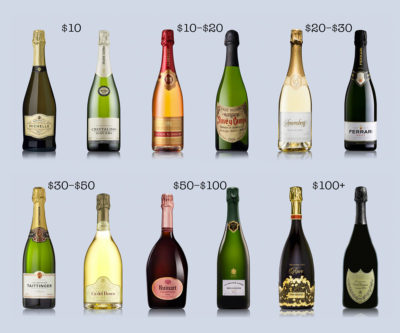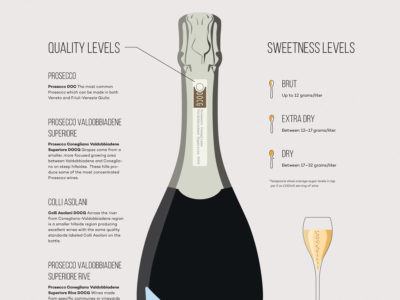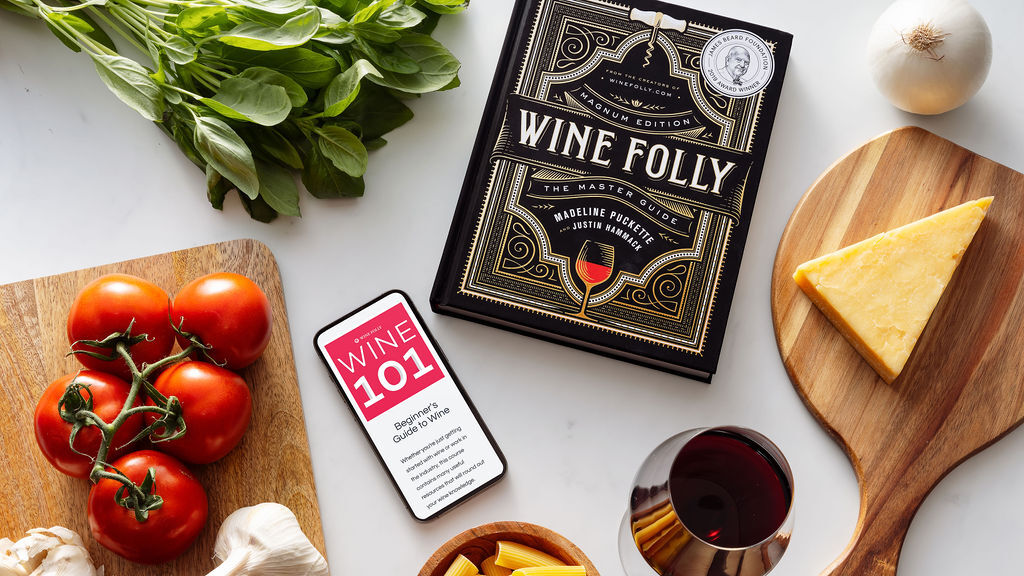
Buy the Book, Get the Course: Get the Wine 101 Course ($50 value) FREE with the purchase of Wine Folly: Magnum Edition.
$34.99
Champagne vs Prosecco: What are the differences and why does Champagne cost so much more?
The quick answer is simple: wine can only be called Champagne when it originates from the Champagne region in France. Prosecco is from Italy. But there’s more than just the name – this is the full story.
The difference in price is partially from the production method used to make each wine. Champagne is a lot more time intensive to produce and thus, more expensive. However, there are more differences between Champagne vs Prosecco than you might think!
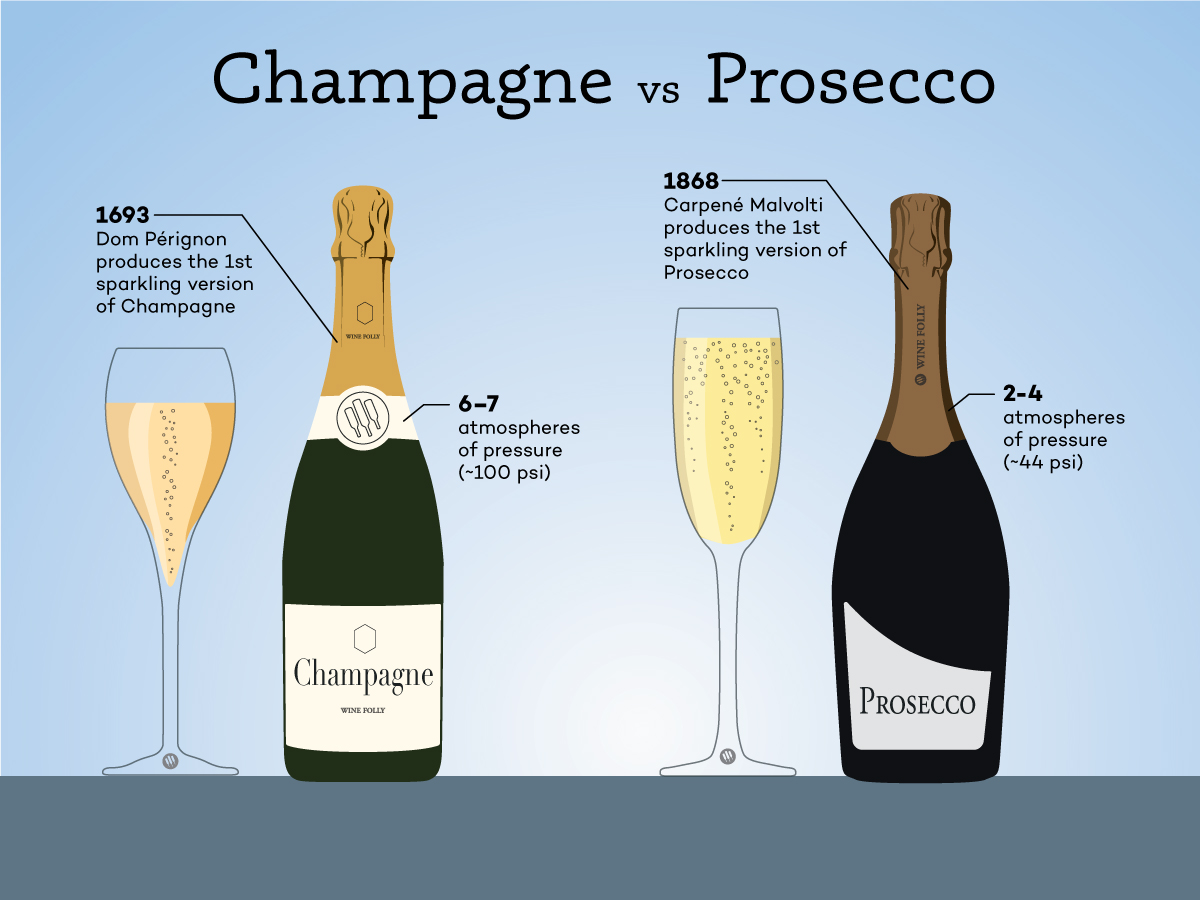
Another factor that affects price is market demand and positioning.
Champagne perception as a luxury commands higher prices. On the other hand, Prosecco perception as a value sparkler means it’s more affordable. Still, exceptional Prosecco wines exist. Look in the Conegliano Valdobbiadene region (and affordable too!).
Let’s explore some more differences between Champagne vs Prosecco.

Champagne
Champagne comes from the Champagne region of France which is about 80 miles (130 km) Northeast of Paris.
- Champagne is primarily Chardonnay, Pinot Noir, and Pinot Meunier grapes.
- Champagne is made using a costly method called the “traditional method.”
- A standard 5 oz serving of Brut Champagne has 91–98 calories and 1.8 g of carbohydrates (12% ABV).
- You should expect to pay $40 for a good entry-level Champagne.
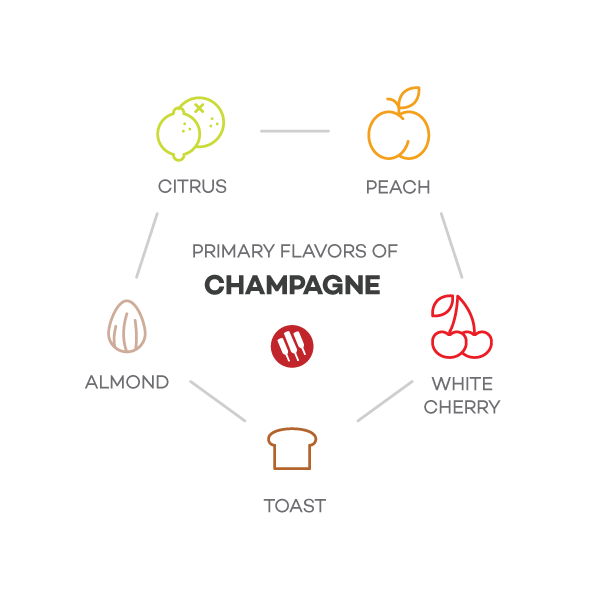
Champagne Tasting Notes
Since carbonation develops under high pressure, Champagne has fine, persistent bubbles. Fine Champagne wines often exhibit almond-like flavors, with subtle notes of orange-zest and white cherry.
The aging process of yeast particles (called lees), often gives Champagne strange cheese rind aromas. However, in finer, vintage-dated Champagnes these aromas smell more like toast, brioche, or biscuit. Yum!
Champagne Food Pairing
Pair Champagne with shellfish, raw bar, pickled vegetables, and crispy fried appetizers. Also, try it with potato chips! This pairing may sound low-brow, but it’s insanely delicious!

Prosecco
Prosecco is a sparkling wine made primarily in Veneto, Italy close to Treviso which is about 15 miles (24 km) North of Venice.
- Prosecco is made with primarily Prosecco (aka “Glera”) grapes.
- Produced using an affordable method called the “Tank Method.”
- A standard 5 oz serving of Extra-Dry Prosecco has 91–98 calories and 2.6 carbohydrates (11% ABV).
- You should expect to pay under $20 for a good entry-level Prosecco.
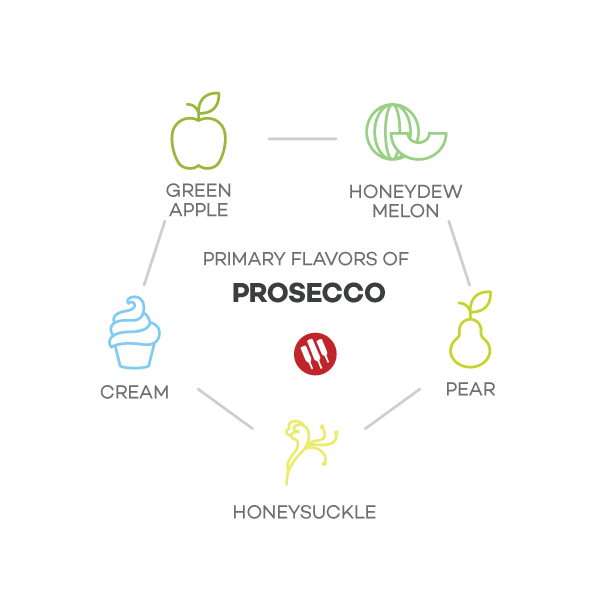
Prosecco Tasting Notes
Prosecco tends to have boisterous fruit and flower aromas (a product of the Glera grape!). Because wines age in large tanks with less pressure, Prosecco has lighter, frothy bubbles that don’t last as long. Still, the aromas in Prosecco smell fabulous. Fine bottles of Prosecco offer up aromas of tropical fruits, banana cream, hazelnut, vanilla, and honeycomb.
Prosecco Food Pairing
Prosecco leans more towards the sweeter end of the spectrum and for this reason makes a great match with cured meats, fruit-driven appetizers (like prosciutto-wrapped melon), and Asian cuisine. Try Prosecco with Pad Thai for a great pairing!
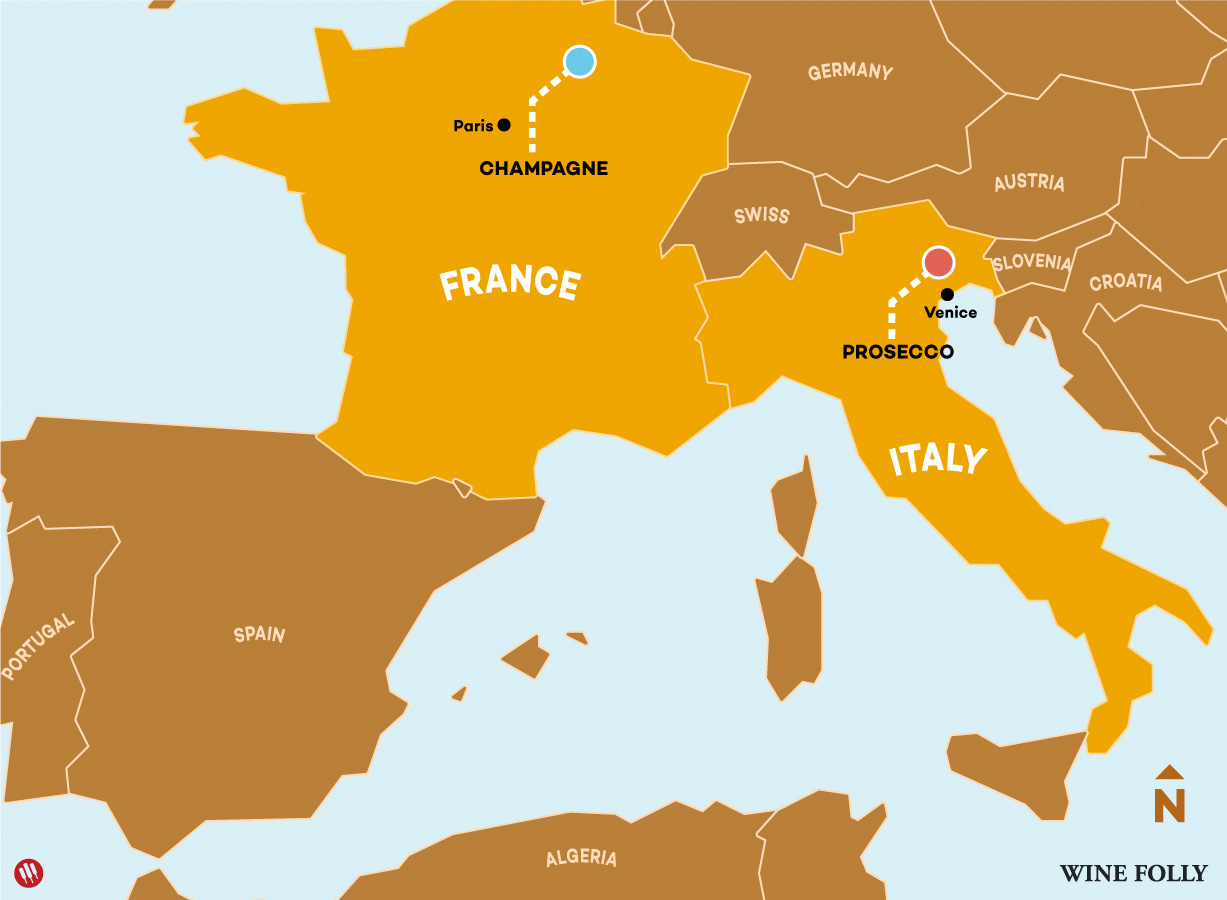
Champagne vs Prosecco Regions
When we put both regions on a map we see that Champagne comes from a much more northerly climate than Prosecco. Thus, Champagne grapes tend to ripen with higher acidity.
Still, the Valdobbiadene region in Italy where Prosecco is made has a unique microclimate which is much cooler than the surrounding area (it rains a lot in Valdobbiadene!). This helps produce crisp and delicious sparkling wines.
Ultimately, both wines have several differences from one another, so be sure to compare Champagne vs Prosecco on your own!
Great Bubbly In Your Budget
It doesn’t matter if you spend $10 a bottle or $100 a bottle. Find the best sparkling wines in your budget.
Discover The Best Prosecco
The best Prosecco isn’t even called Prosecco! Find out more about Prosecco quality levels.

